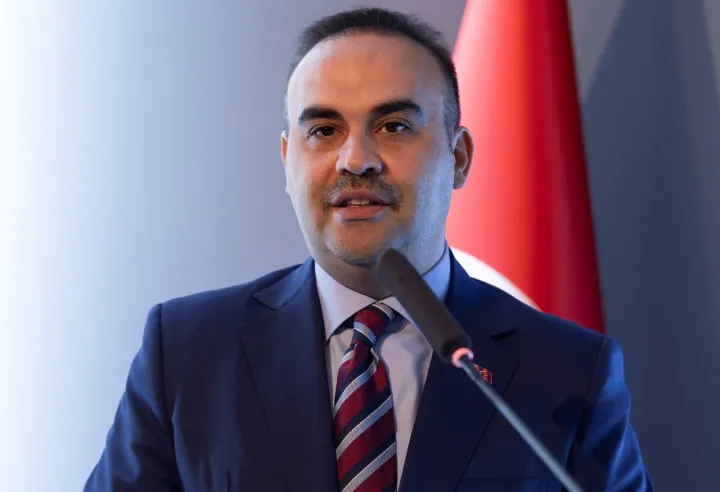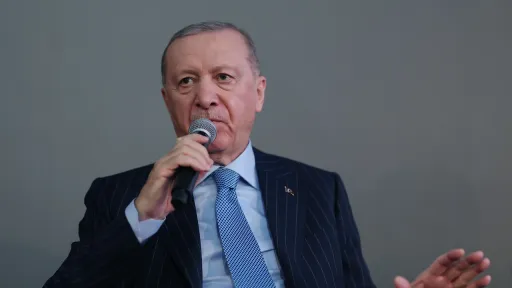World Humanitarian Day is being observed across the globe aimed at highlighting the importance of humanitarian services delivered by individuals, organisations and governments.
One of the leading countries in humanitarian aid is Türkiye. The country has been providing humanitarian aid in many countries around the world for years. It is the most generous country in terms of the volume of aid it gives in relation to its GDP.
According to a report by UK-based Development Initiatives (DI), a global organisation harnessing the power of data and evidence to end poverty, reduce inequality and increase resilience, Türkiye spent $5.59 billion in humanitarian aid in 2021 alone, accounting for 0.86% of its GDP.
Türkiye has almost doubled its aid since 2014. The country has maintained its position as "the most generous country in the world" since 2015.
In a speech to students at Ankara's Hacı Bayram Veli University in October 2022, Turkish President Recep Tayyip Erdogan stressed the importance of Türkiye's aid programmes around the world.
Türkiye's humanitarian aid programmes, which began in the mid-1980s with food aid, have intensified over the last decade, extending to various regions of the world and expanding now including sectors outside food aid.
Ankara has provided financial and material aid following natural disasters such as floods, forest fires, drought, earthquakes, hurricanes, tornadoes and volcanic eruptions in various countries.
Assistance to Africa
Africa remains one of the main focus areas for Turkish aid. In 2019, Türkiye provided aid to Mozambique, whose Beira province had just been devastated by cyclone Idai, leaving hundreds dead.
The relief unit of the Turkish Ministry of Health offered medical aid to the victims of the disaster. In the same year, Türkiye provided emergency aid to Burkina Faso, Algeria, Djibouti, Chad, Ethiopia, Gambia, South Sudan, Cameroon, Comoros, Namibia, Niger, CAR, Somalia, Sudan, Tanzania and Tunisia.
In 2021, Anakara flew to the aid of African countries in need of emergency aid, such as South Sudan, Mozambique and Madagascar.
In July 2022, Turkish President Erdogan declared that his country had already spent more than a billion dollars in development aid on Somalia. Türkiye is Somalia's leading development partner.
In the light of its experience in international humanitarian aid, Türkiye also supports efforts to make the UN-led global humanitarian system fairer and more effective.
The Turkish people have a deep-rooted tradition of charity, which stems from their history and culture.
Accordingly, Türkiye gives assistance without discrimination as to race, religion or gender, while contributing to international humanitarian aid efforts. Many non-governmental organisations, including the Turkish Red Crescent, are also active in the field of humanitarian aid.
The Turkish Ministry of Foreign Affairs says "Türkiye considers assistance to countries in difficulties due to natural disasters, war, poverty or social conflicts as a humanitarian duty and an important contribution to the stability of the international community."
World humanitarian situation
The UN observes World Humanitarian Day on August 19 each year to recognise humanitarians around the world. The day was set aside following a massive bombing of UN office in Baghdad, Iraq in 2003 when at least 22 people were killed.
As 20th anniversary of the event takes place, a total of 62 humanitarian aid workers have died so far this year.
Dozens of others have either been wounded or kidnapped during their humanitarian work. South Sudan being the world's most dangerous place for aid workers.
Some 363.3 million people are in need of humanitarian aid, according to the UN Humanitarian Coordination Office (OCHA).
Ethiopia, the Democratic Republic of Congo , Sudan and South Sudan are among the top 10 countries in need of humanitarian aid.
For several years running South Sudan has been the world's most dangerous place for aid workers. As of August 10, there had been 40 attacks on humanitarian staffers there with 22 lives lost, said the UN Office for the Coordination of Humanitarian Affairs.
Next on the list is Sudan to the north, with 17 attacks on aid workers and 19 deaths this year. Such high figures had not been seen since the Darfur conflict from 2006 to 2009.
Other countries where humanitarian workers died include the Central African Republic, Mali, Somalia, Ukraine and Yemen.
























